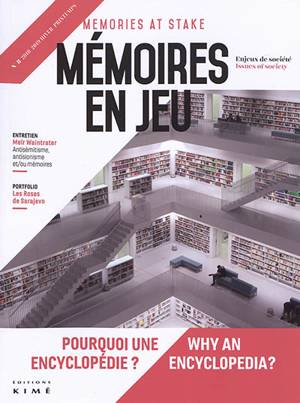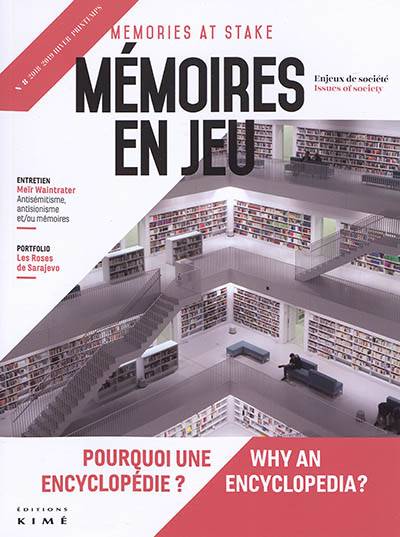
- Retrait gratuit dans votre magasin Club
- 7.000.000 titres dans notre catalogue
- Payer en toute sécurité
- Toujours un magasin près de chez vous
- Retrait gratuit dans votre magasin Club
- 7.000.0000 titres dans notre catalogue
- Payer en toute sécurité
- Toujours un magasin près de chez vous
Pourquoi une encyclopédie ?
Description
Les politiques illibérales du passé
Même si les États ont toujours tenté de maîtriser les représentations du passé pour en donner une version officielle, durant les années 1990 une nouvelle tendance est apparue qui ouvrit un registre différent : obligation du souvenir, effort pour être transparent, intérêt aux victimes. La mémoire est devenue un marqueur démocratique fort. Toutefois, cette progression rencontre d'évidentes limites. De nombreux pays continuent de promouvoir une forme d'histoire officielle « héroïsante » refusant la reconnaissance des crimes d'État (Russie, Turquie, entre autres). À cela s'ajoutent des réactions nationalistes ou
populistes aussi bien qu'un discrédit sur le « devoir de mémoire » qui serait considéré comme une insulte à l'honneur national. Le cas le plus spectaculaire a été celui du gouvernement polonais quand il a essayé de promouvoir en 2018 une loi pénale visant à réprimer ceux qui accusent la nation ou l'État polonais d'avoir commis des crimes durant la Shoah.
Illiberal policies regarding the past
Even if states have always attempted to control the representations of the past in order to give an official version of it, in the 1990s a new trend has appeared which has opened another register involving the obligation to remember, an effort to be transparent, and a concern for the victims. Memory has become a strong democratic marker. Nevertheless, this progression encounters several obvious limits. Many countries (Russia and Turkey among others) continue to promote an official form of heroic history while refusing to acknowledge state-sponsored crimes. In addition, there are nationalist or populist reactions that result in a discrediting of the « duty to remember » which may now come to be regarded as insulting to the national honour. The most remarkable case has occurred in Poland where the government tried in 2018 to pass a law that would punish those who claim the Polish nation-state committed crimes during the Holocaust.
Spécifications
Parties prenantes
- Editeur:
Contenu
- Nombre de pages :
- 186
- Langue:
- Français, Anglais
Caractéristiques
- EAN:
- 9782841749133
- Date de parution :
- 12-04-19
- Format:
- Livre broché
- Dimensions :
- 210 mm x 280 mm
- Poids :
- 660 g

Les avis
Nous publions uniquement les avis qui respectent les conditions requises. Consultez nos conditions pour les avis.





